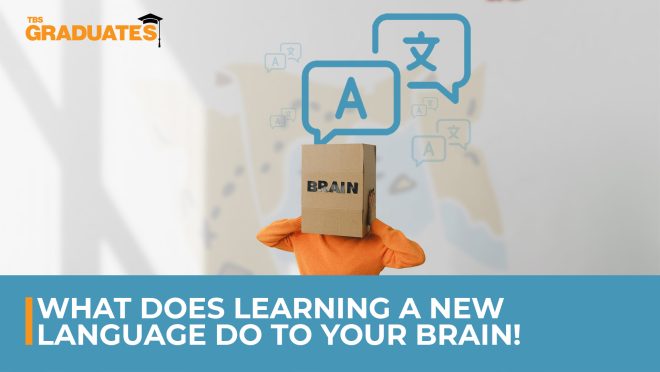What does learning a new language do to your brain!
What does learning a new language do to your brain!

Have you ever wondered what happens inside your brain when you learn a new language? Hold onto your hats- I am about to take you on a wild ride of understanding how learning a new language completely transforms your brain!
Studies show that learning a second language is like giving your brain the ultimate workout, akin to doing yoga for the brain. It is not just about mastering syllables and syntax it is more about moulding your brain into a mean, slender language processing machine.
Mental activity may transform our pupils in the same way that frequent diving and exercise can affect our bodies. By doing this exercise to your brain’s muscles, you can unleash your brain’s limitless potential by engaging in this mental workout.
When you learn something new, whether it is mastering throw skill or learning a new word you are not flexing your muscle, you are flexing your brain.
Here is the thing: muscle memory lives in the brain, not in the muscles. Your brain controls everything your muscles do and does this by activating specific neural pathways for each and every movement. The mechanism of “neurons that fire together, wire together” is the foundation of all learning.
Did you know that more than half of the world’s population speaks more than two languages? Yes, that is right! We are living in a linguistic wonderland where learning a language is not just a skill, it is a superpower for the brain.
So, what is the scoop on bilingual people? Bilingual people have been known to exhibit extended concentration spans, as it strengthens the attention system in the front of the brain by constantly selecting from two available languages enhancing the power of concentration.
Ever wonder why bilingual people seem to have the attention span of a Zen master? When bilingual people speak, both their language faculties are activated. However, they rarely make the mistake of choosing a word from the wrong language.
This is because the prefrontal cortex focuses on a specific language at a particular moment making you a more focused person. Now, you will be thinking, “Does all this brain jazz make bilingual people superhuman thinkers?”
The answer is yes because the bilingual brain has improved cognitive abilities, such as reading, remembering and thinking.
A study conducted by researchers, where bilingual and monolingual children were asked to sort shapes and colours; revealed that bilingual children were faster at sorting items compared to monolingual children, who tend to react slower when shapes were added.
This suggests that learning a second language heightens the brain’s executive functions such as planning, problem-solving, and other intellectually demanding activities.
It is like giving your brain a full-on executive update. Bilingual individuals have denser grey matter. Grey matter makes up the ultimate layer of the brain, the top layer of the brain, known as the VIP section, it allows us to control our movement and gives us the ability to govern our emotions. There is a positive indication that it may delay the onset of dementia.
What else does the bilingual brain do? According to a study, people who pick up a second language in adulthood show less emotional prejudices and a more rational approach when confronting problems in the second language than in their native one. It is like having the built-in rationality filter allowing them to tackle challenges with cool-headed clarity!
So folks, are you ready to spend at least 10-15 every day on getting a grip of a new tongue! Are you an Otaku, I guess in that case learning Japanese could add an extra layer of enjoyment!


